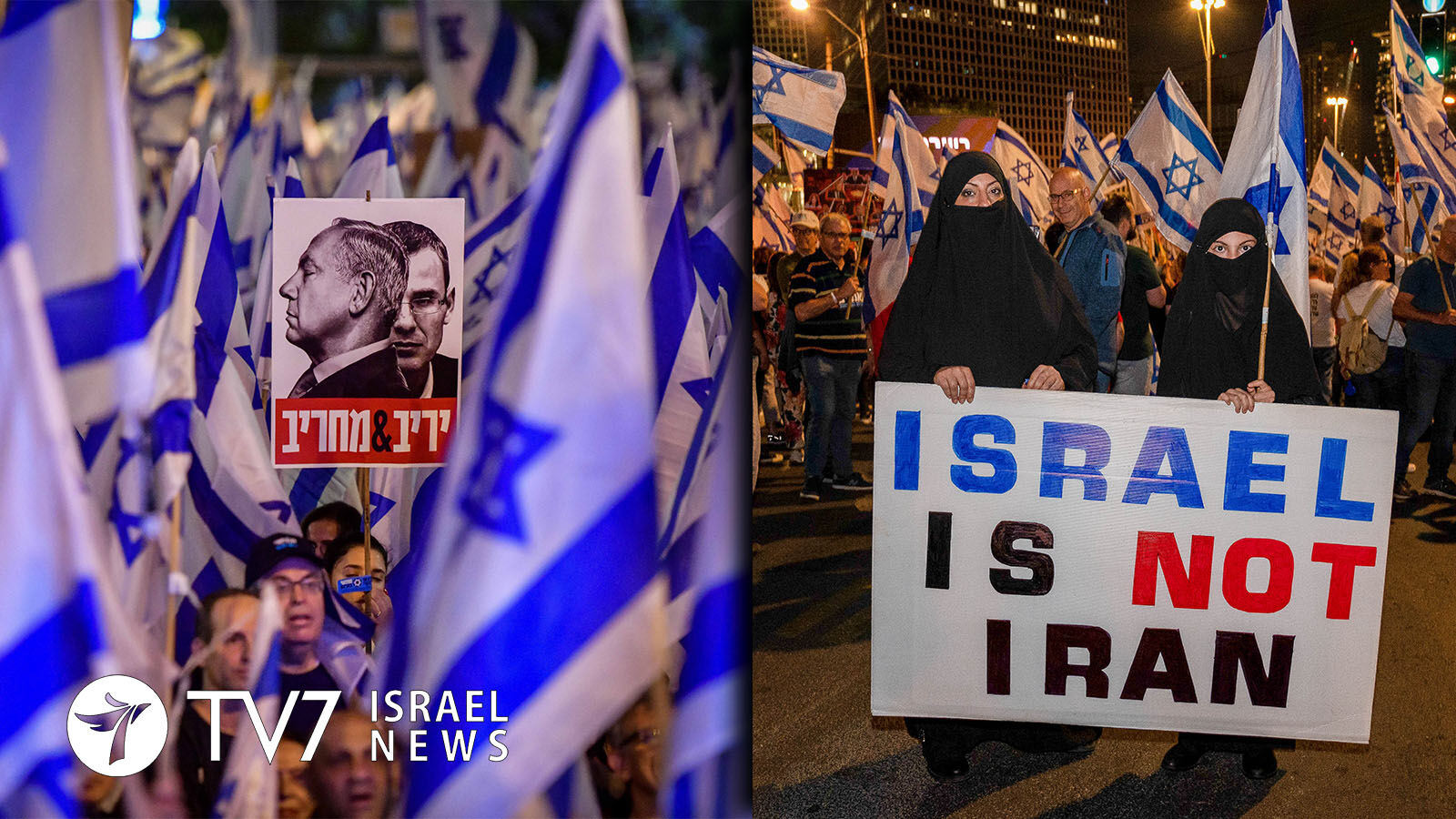Tens of thousands of Israelis participated in demonstrations across the country against Prime Minister Benjamin Netanyahu‘s contested plans to tighten controls on the Supreme Court.
By Erin Viner
Organizers said that at least 135,000 people joined the protests at about 150 locations on Saturday evening that included the major cities of Tel Aviv, Jerusalem, Haifa and Beersheba.
A sea of blue and white Israeli flags, which have become a symbol of the protests, lined a central highway in Tel Aviv. Protestors chanted, “Israel is almost a dictatorship,” as a banner reading “stop them” was held up by the crowd.
“It scares me that we are still a few hours away at any given moment from turning from a democracy to a dictatorship,” 40-year-old computer programmer Sagi Mizrahi told Reuters, adding, “I’m here because of the judicial system and the laws that are still sitting on the table, it’s just scary.”
The nation has been gripped by unprecedented weekly nationwide demonstrations following the 4 January 2023 announcement that the Netanyahu coalition – which took office only days before on 29 December 2022 – of a sweeping “reform of governance” to limit Supreme Court rulings against government moves or Knesset laws, while increasing politicians’ input over nominations to the bench.
Israel’s right-wing 37th government, an alliance between the Premier’s Likud party with several smaller religious and hard-right nationalist factions, asserts it holds the mandate for changes, deemed necessary to curb overreach by activist judges and restore balance between the legislative, executive and judiciary.
The court’s defenders say it plays a vital role in holding the government to account in a country that has no formal constitution, and that the government’s overhaul would weaken the courts, endanger civil liberties and harm the economy. The proposal has drawn fierce condemnation from Opposition Members of Knesset (MKs), legal officials, military reservists and advocacy groups – further broadening already deep political divisions in Israeli society in what has been described as Israel’s worst-ever crisis.
Prime Minister Netanyahu, who is himself on trial on corruption charges which he denies, had dismissed the protests as refusal by leftist adversaries to accept the results of the 1 November’s election which resulted in one of the most right-wing governments in Israel’s history. He has ardently defended the judicial overhaul.
Under pressure by the ongoing demonstrations, the deadline for a 15 March Knesset vote on the matter was delayed to 15 June to allow for compromise negotiations brokered by Israeli President Isaac Herzog.
Earlier this month, coalition MKs said that failure to reach agreement in the compromise talks could threaten guaranteed inclusion of opposition representation on the Judicial Selection Committee as in the past.
On Saturday, protest organizers demanded Opposition Leaders MK Yair Lapid and MK Benny Gantz immediately withdraw from the “deceptive” negotiations they alleged are being used by the Prime Minister as a delaying tactic to buy time. “The government’s plan to plunder the public treasury in favor of political corruption, rather than investing in the welfare of citizens, is a decisive step towards transforming Israel into a dictatorial regime,” read one of a series of statements.
Lapid, the leader of the centrist Yesh Atid political party, praised the nation’s protestors from preventing passage of the contested legislation. Insisting that Judicial Selection Committee be convened immediately to “start working according to the rules that have been used all these years,” he stated that the opposition would not take part in a “fraud” that render the negotiations pointless if excluded from the panel.
“The government needs to remove all laws from the Knesset table, and they need to understand there will be no situation in which the coalition chooses judges for itself,” he posted on social media Saturday night, underscoring, “It’s not going to happen. Not on our watch.”
